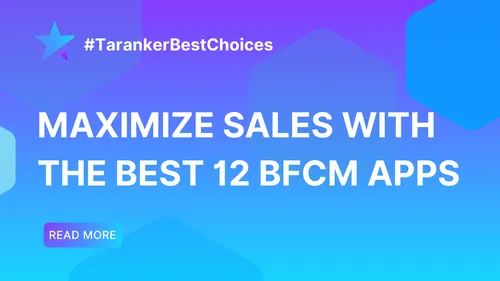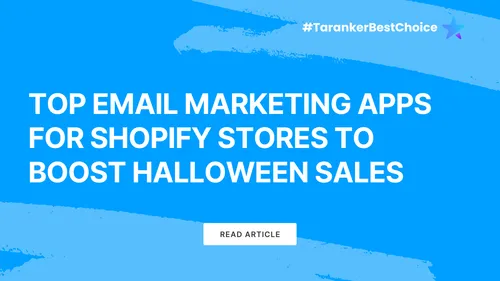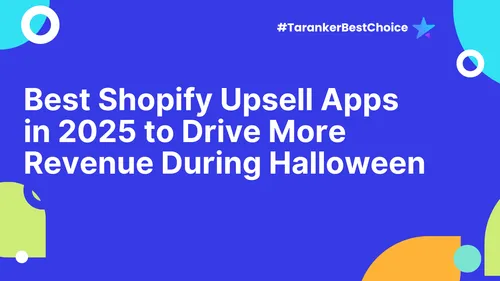With thousands of skincare brands emerging, finding a place in this saturated market can be a daunting task. However, by leveraging unique strategies and understanding market dynamics, brands can effectively differentiate themselves from the competition. This guide provides insight into actionable steps and industry examples to help your skincare brand shine.
In recent years, the skincare industry has seen explosive growth, with countless new brands vying for consumer attention. Amid this ever-expanding landscape, emerging brands may feel overwhelmed by market giants and the continual influx of new competitors. But don't be discouraged—opportunity abounds for savvy entrepreneurs willing to innovate and understand the nuances of the industry.
Throughout this blog post, we will delve into key strategies for differentiation, from harnessing the power of niche markets to leveraging digital marketing tools effectively. You'll gain insight into how successful brands have navigated their way to prominence and learn practical steps to enhance your own brand's visibility and appeal. Whether you're a new entrant or an established player looking to refresh your approach, these insights will equip you with the understanding needed to carve your unique path in the bustling world of skincare.
Get ready to uncover the secrets of standing out in this vibrant sector—it's time to make your mark and turn the tide in your favour!
Understand Your Target Audience Deeply
Knowing your audience's needs, preferences, and pain points is crucial for standing out in the crowded skincare market. By understanding your customers, you can tailor your products and marketing strategies to resonate more effectively. Here’s how:
- Conduct Surveys: Gather valuable insights through structured feedback. This direct consumer input helps in refining your product offerings.
- Leverage Focus Groups: Organize focus groups to observe real-time reactions to your ideas and prototypes. Unearth deeper motivations and emotional triggers.
- Analyze Social Media Insights: Monitor conversations around skincare trends and issues on platforms like Instagram and TikTok. This can reveal emerging needs and preferences.
- Create Customer Personas: Develop detailed profiles representing different consumer segments. Use these personas to guide product development and branding initiatives.
Case Study: Glossier's Customer-Centric Approach
Glossier, a leading skincare brand, uses customer feedback extensively to guide its product line. By engaging directly with their audience on social media, they ensure that their product development is aligned with consumer desires, leading to highly successful launches.
FAQs
- Why is understanding the target audience important?
Understanding ensures that products meet real consumer needs, increasing satisfaction and loyalty. - How often should I conduct surveys?
Regular surveys, at least quarterly, help keep up with changing consumer trends.
Develop a Unique Value Proposition
In the crowded skincare market, differentiating your brand is essential for success. To carve out your niche, it's crucial to develop a strong Unique Value Proposition (UVP). Here's how to ensure your brand stands out:
- Highlight Unique Ingredients: Emphasize special, scientifically-backed ingredients that set your products apart.
- Focus on Ethical Sourcing: Showcase sustainable practices that resonate with eco-conscious consumers.
- Innovative Formulas: Invest in research and development to offer cutting-edge skincare solutions.
- Consistent Messaging: Ensure your UVP is reflected across all marketing materials for cohesive brand identity.
One successful case study comes from the brand Herbivore Botanicals. They built a loyal customer base by focusing on natural ingredients and eco-friendly packaging. This strong UVP supported their position in the market, setting an example you can follow.

FAQs
- What is a Unique Value Proposition? A UVP is a clear statement that articulates what makes your brand or product unique and valuable to customers.
- Why is it important? A well-defined UVP helps your brand stand out from the competition, attracting and retaining customers.
Leverage Influencer Partnerships
Collaborate with influencers who embody your brand’s ethos and have a genuine connection with their audience. This can enhance credibility and increase brand visibility in a crowded market. Influencer partnerships can be a powerful tool in differentiating your skincare brand. Here’s how to effectively leverage them:
- Select the Right Influencers: Identify influencers whose values align with your brand and audience. Authenticity is key.
- Build Long-term Relationships: Consider ongoing partnerships rather than one-off promotions to create lasting impact and loyalty.
- Create Engaging Content: Work with influencers to develop content that resonates with their followers, like tutorials or testimonials.
Consider the case of Skincare Co., which partnered with wellness influencers to create a series of educational videos. This collaboration not only boosted their social media presence but also drove a 30% increase in sales within six months.

FAQs
- How do I choose the right influencers? Look for those with an audience that matches your target market and align with your brand values.
- How can I measure the success of influencer partnerships? Track metrics such as engagement rates, website traffic, and conversion rates.
Implement Sustainable Practices and Product Transparency

Consumers are increasingly eco-conscious, leading to a noticeable shift in the skincare industry. By implementing sustainable practices and ensuring product transparency, brands can effectively stand out. Here are some actionable strategies to consider:
- Eco-friendly Packaging: Choose reusable or biodegradable materials for packaging to reduce environmental impact.
- Sustainable Sourcing: Ensure raw materials are obtained responsibly, supporting ethical suppliers and fair-trade practices.
- Ingredient Transparency: Clearly list all product ingredients and their sources to build consumer trust.
- Certifications: Obtain relevant eco-certifications to validate your commitments and attract conscious consumers.
A real-world success story is \"Brand X,\" which boosted its sales by 30% after shifting to compostable packaging and prominently displaying its sourcing certifications. For those wondering how to move forward.
FAQs
- What certifications should I consider? Look for certifications like 'Cruelty-Free', 'Fair Trade', and 'Organic'.
- How can I ensure my sourcing is sustainable? Partner with vendors who have transparent supply chains and adhere to fair labor practices.
By taking these steps, skincare brands can differentiate themselves through eco-responsible strategies, meeting the expectations of discerning consumers and building long-term loyalty.
Utilize Data-Driven Marketing Strategies
In the fast-paced skincare market, leveraging data-driven marketing strategies is crucial for setting your brand apart. Employ data analytics to refine your marketing approach. By monitoring customer engagement, purchase patterns, and feedback, you can optimize campaigns for more impactful results. Here’s how:
- Analyze customer demographics to craft personalized marketing messages.
- Track buying habits to identify popular products and adjust your inventory accordingly.
- Collect and use feedback to improve product formulations and customer satisfaction.
Consider the case of SkincareX, a brand that transformed its marketing strategy by analyzing customer data. By identifying peak purchase times and preferred product combinations, they tailored their promotions, boosting sales by 30% in six months.

FAQs
Here are some common questions about data-driven strategies in skincare:
- How can small brands gather data effectively? Use affordable tools like Google Analytics and social media insights to start collecting valuable information.
- What type of data should I focus on? Look at customer demographics, buying behavior, and feedback to tailor your marketing efforts.
By employing targeted data analytics, skincare brands can not only refine their approach but ultimately stand out in the crowded market, driving sales and enhancing customer relationships.
Real-World Success: Case Study of a Skincare Brand
In the bustling skincare market, differentiation is key. Let's dive into how GlowNaturals, a budding skincare brand, carved out a unique spot. Here's a breakdown of their journey to success:
- Strategy: GlowNaturals focused on natural ingredients and sustainability, targeting eco-conscious consumers.
- Challenges: Their initial challenge was competing against established brands with larger marketing budgets.
- Approach: They leveraged social media campaigns showcasing their product sourcing and customer testimonials.
- Outcomes: This genuine, community-driven marketing increased customer loyalty and brand visibility.
By embracing authenticity and sustainability, GlowNaturals not only thrived but also inspired customer trust and engagement. This approach offers valuable insights for any skincare brand seeking to stand out.
FAQs
- How important are natural ingredients in differentiating a skincare brand? They're crucial for appealing to health-conscious consumers who prioritize skin health alongside environmental responsibility.
- What's the best way to build trust with new customers? Authentic storytelling and transparency in product sourcing can effectively build trust and resonate with consumers.
Standing out in the skincare market requires a blend of innovation, understanding, and strategic marketing. By focusing on customer needs, promoting unique value propositions, and ensuring ethical practices, brands can effectively reduce market noise and build lasting relationships with their audience.
To summarize, thriving in the skincare sector isn't just about having a great product. It's about understanding your target market deeply and delivering what they truly want. This involves not only innovation in product development but also transparent communication and ethical marketing that resonate with conscious consumers.
- Embrace innovation by researching and incorporating the latest skincare science.
- Engage with your audience to understand and exceed their expectations.
- Develop a strong, authentic brand voice and stay consistent.
- Utilize digital platforms for strategic and targeted marketing.
- Maintain ethical practices to build trust and long-term loyalty.
The skincare market is crowded, but by focusing on these critical areas, your brand can not only stand out but also lead the way in creating a more customer-centric and ethically conscious industry landscape. Now is the time to implement these strategies, set your brand apart, and cultivate a devoted customer base willing to champion your products.














